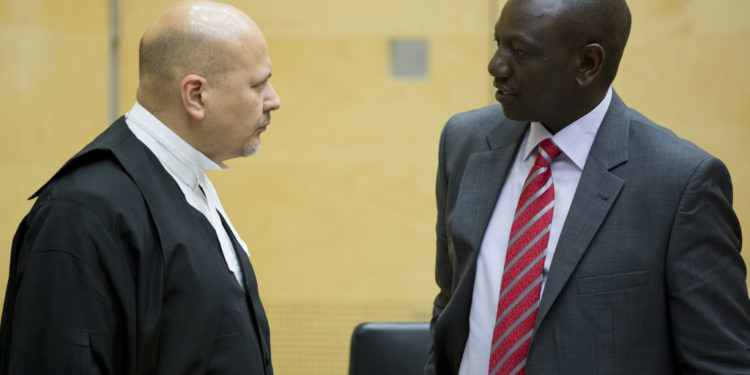William Ruto has requested the International Criminal Court (ICC) to be excused from attending his trial at The Hague because of Pope Francis’s visit to Kenya.
Through his Defence Counsel, Ruto claims there are ‘exceptional circumstances to justify his absence.’ “The Historic occasion of His Holiness’s visit Mr.Ruto’s presence in Nairobi…,”notes his defence.
“From 25 to 30 November 2015, His Holiness Pope Pope Francis will make his first trip to Africa, visiting Kenya, Uganda and the Central African Republic to address crucial issues for the continent, including inter-religious violence, radicalization of youth and poverty. The papal visit to Kenya, scheduled from 25 to 27 November is of the very highest importance to the Republic of Kenya and millions of Kenyans, twenty years after the last papal visit in September 1995.”
The itinerary of Pope Francis includes a meeting with President Uhuru Kenyatta, the Deputy President and the Archbishop of Nairobi, an inter-religious meeting at the Apostolic Nucio, the celebration of a Holy Masss at the University of Nairobi and a major address to the youth from across the country at Kasarani Stadium.”
However, if the request is denied, Karim Khan says,
“The Chamber should postpone the scheduled hearing to 30 November and 1 December 2015, or such later date, in order to allow Mr. Ruto to be preset in Kenya during the papal visit and to hold the meetings and attend the events scheduled for that period.”
On November 27, 2013 the Assembly of State Parties, who are signatories to the Rome Statute, adopted amendments to Rule 134 of the ICC Rules of Evidence, allowing an accused to make an application to be physically absent during trial.
The rule allows an accused, who is mandated to fulfill extraordinary public duties at the highest national level, to submit a written request to the Trial Chamber to be excused and be represented by counsel. The rule requires the Chamber to consider the request expeditiously, and if alternative measures are inadequate, to grant the request where it determines that it is in the interest of justice.







